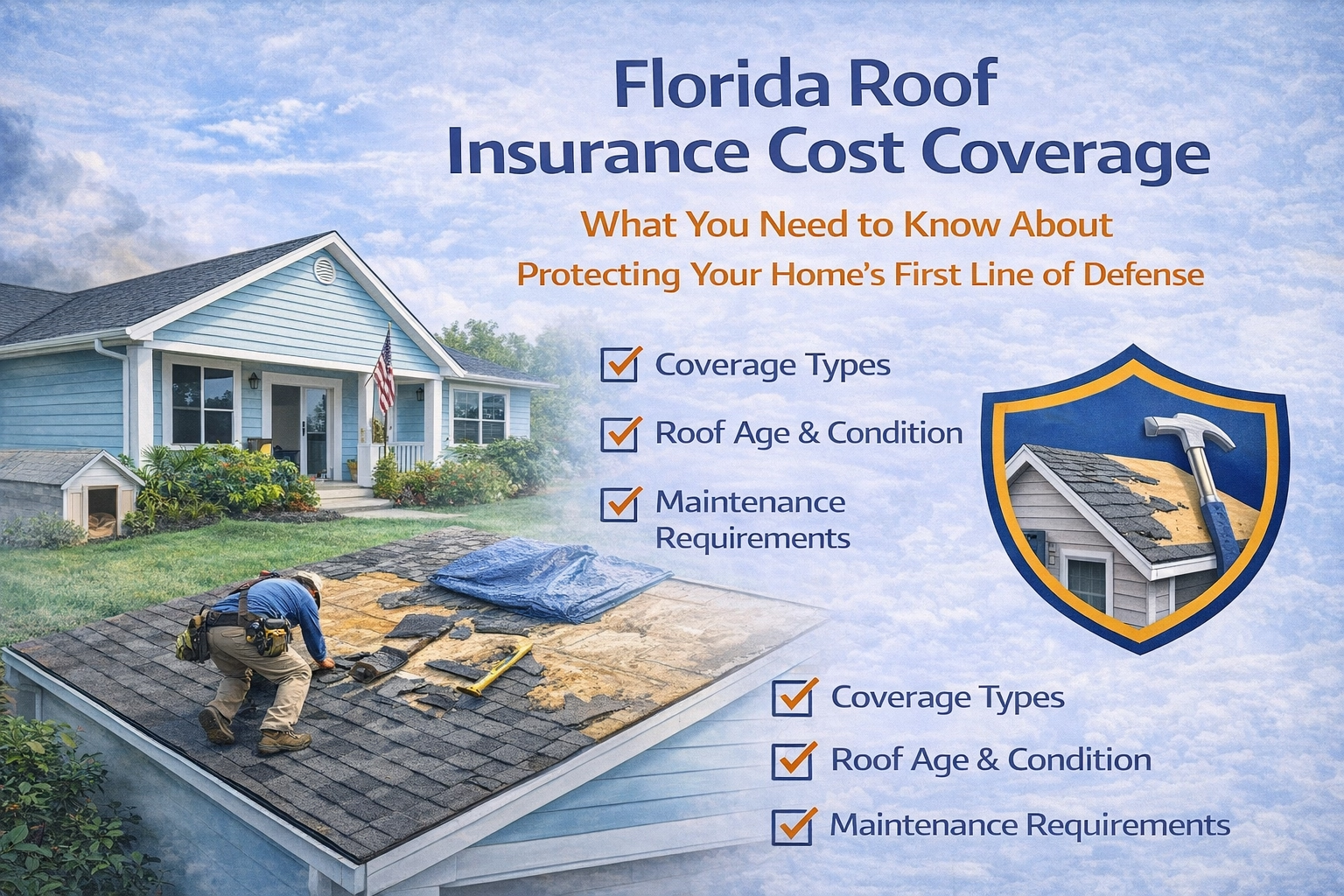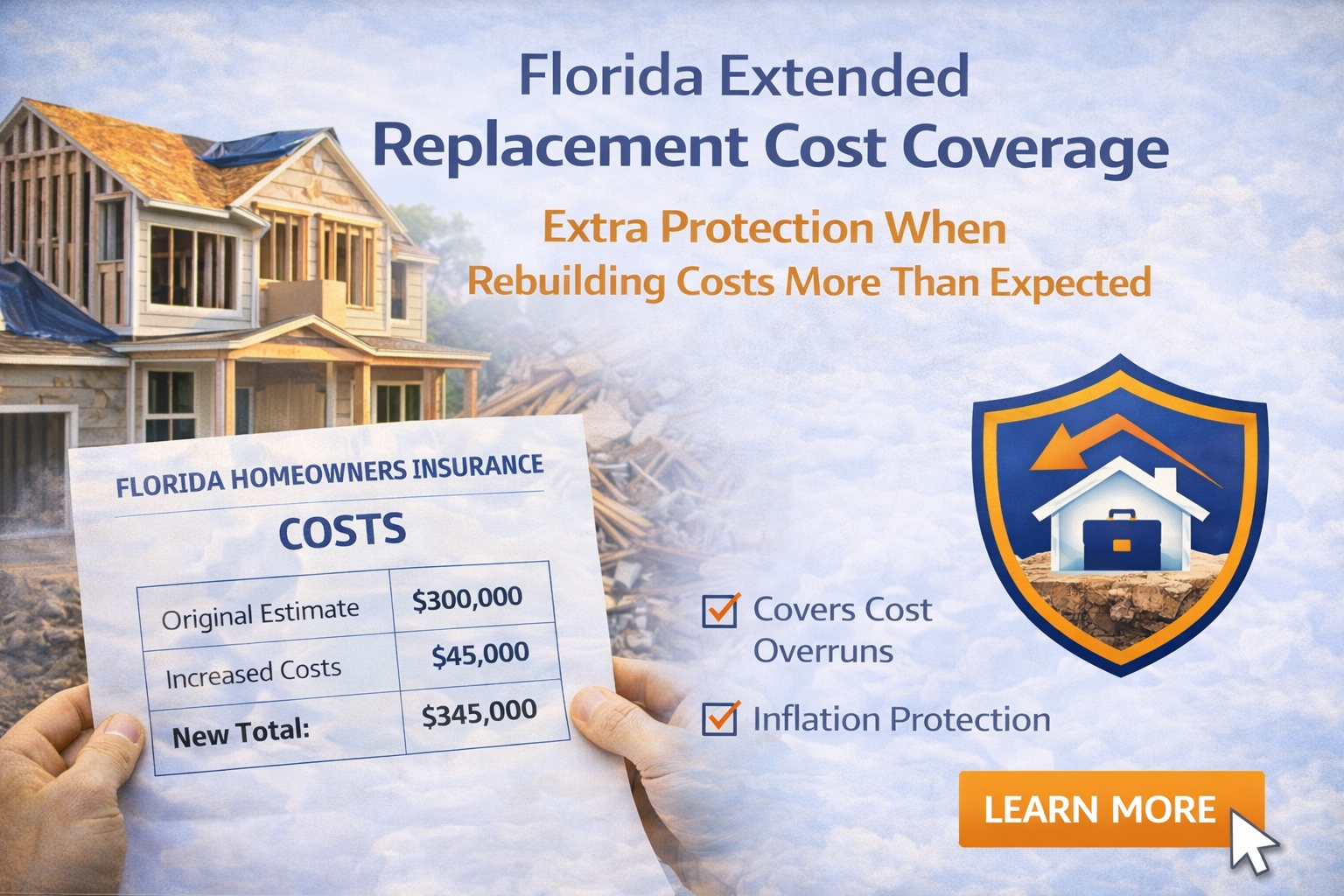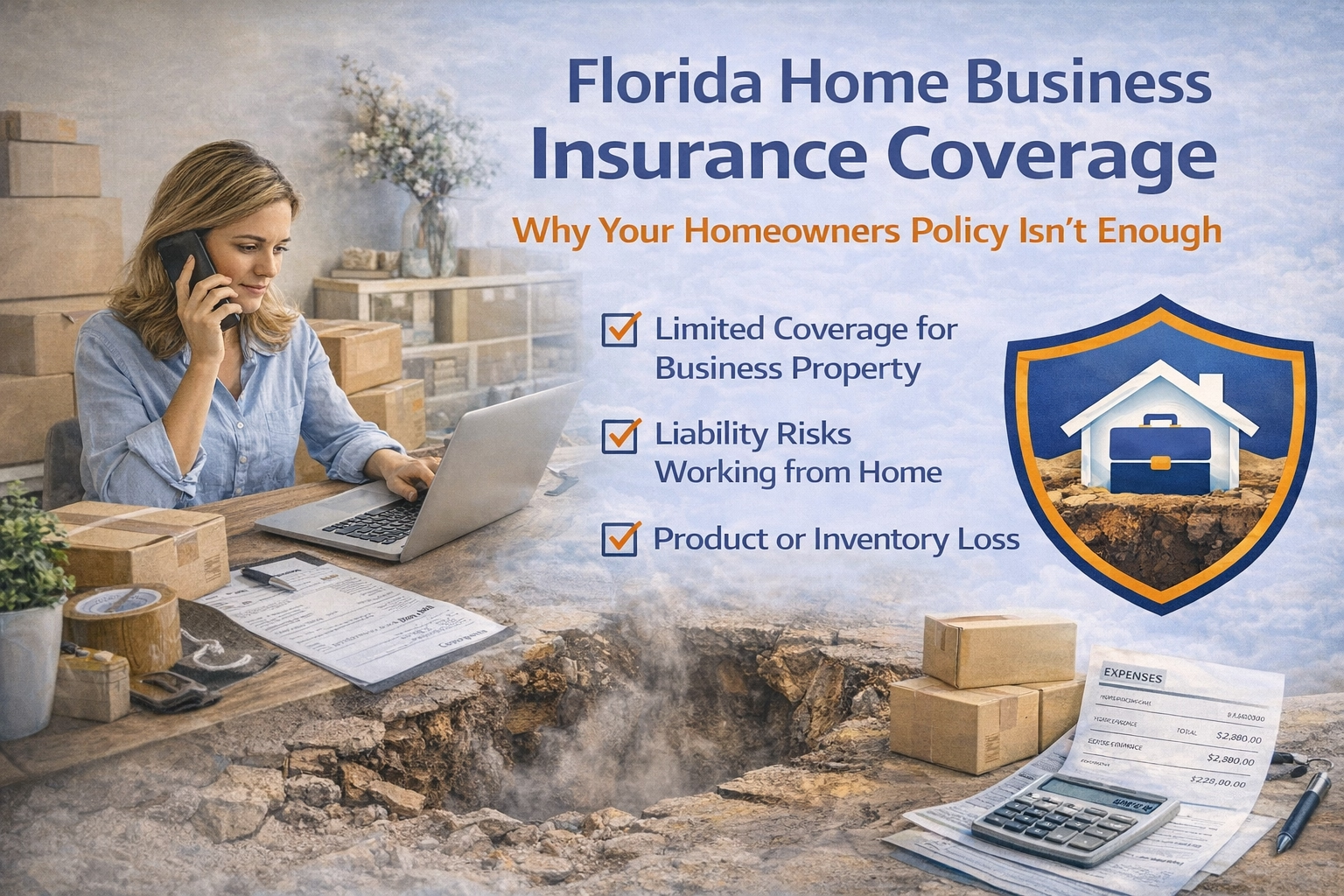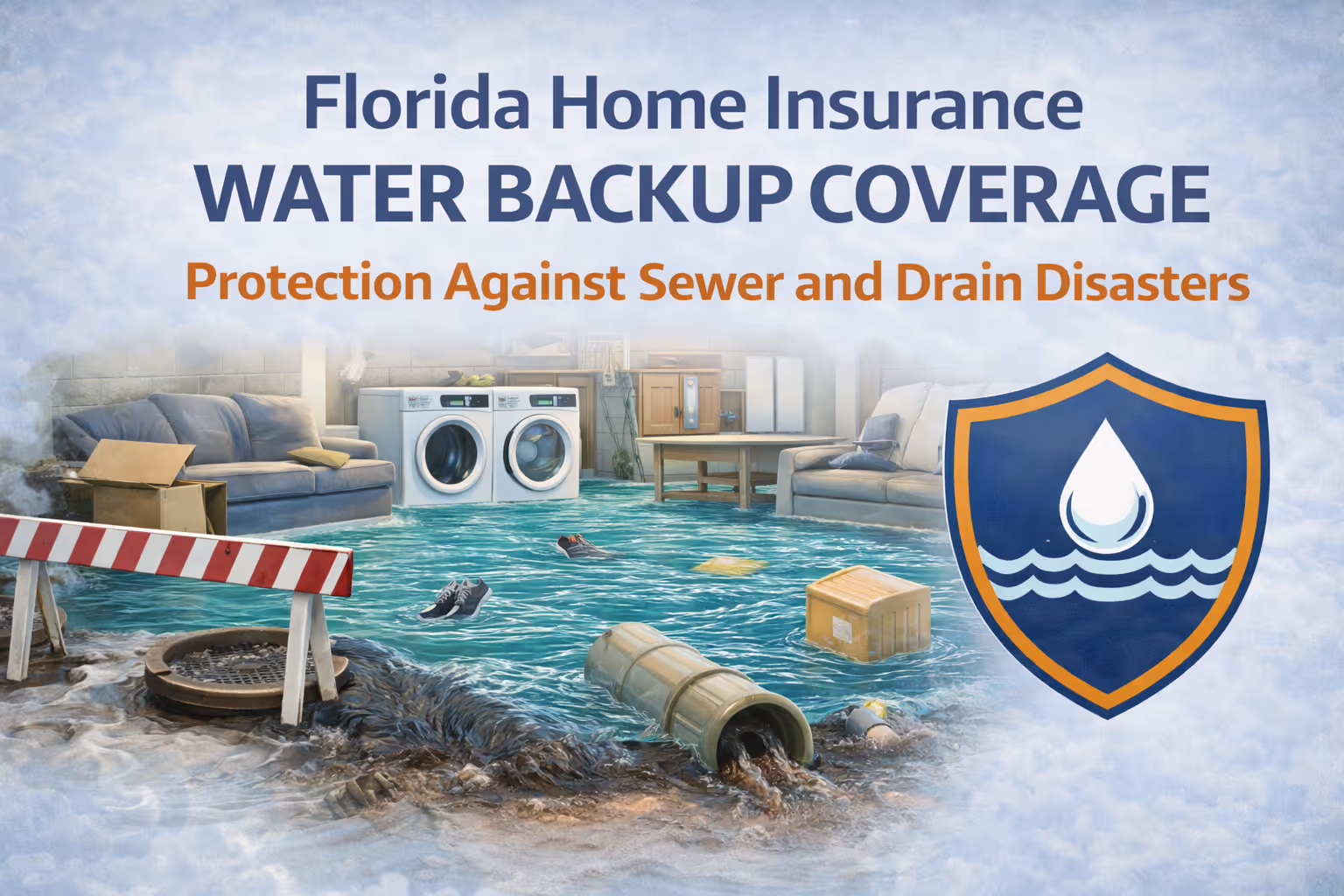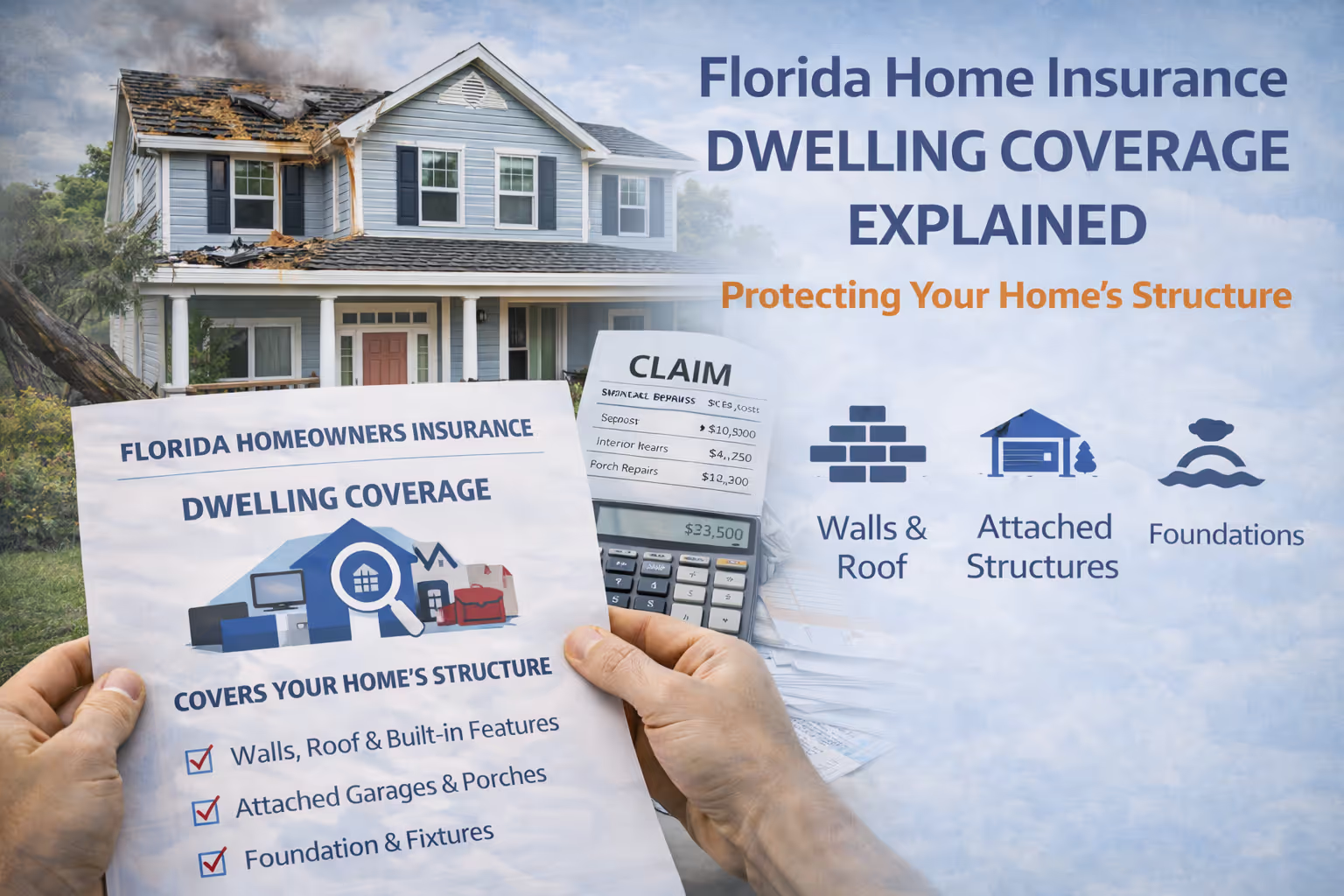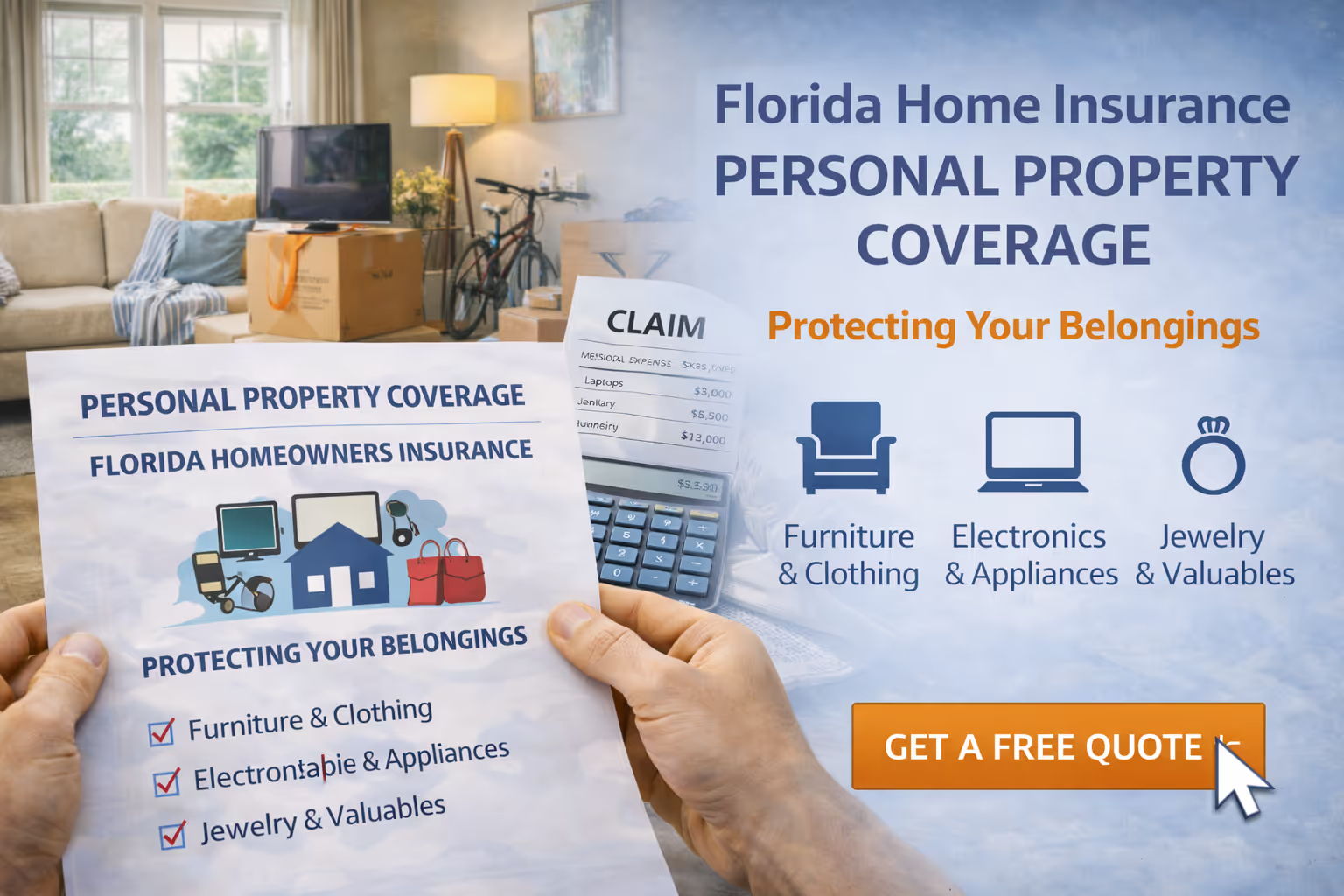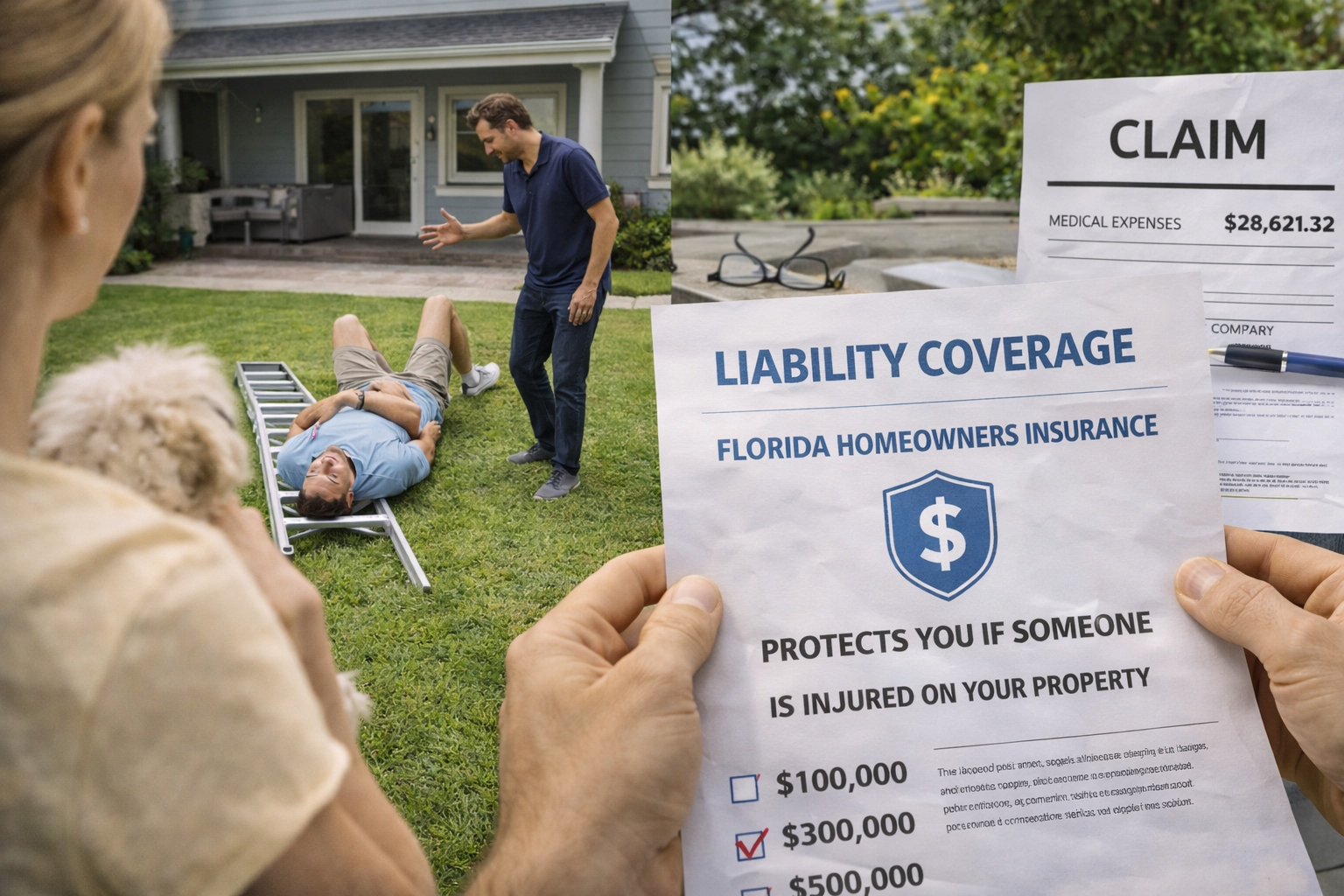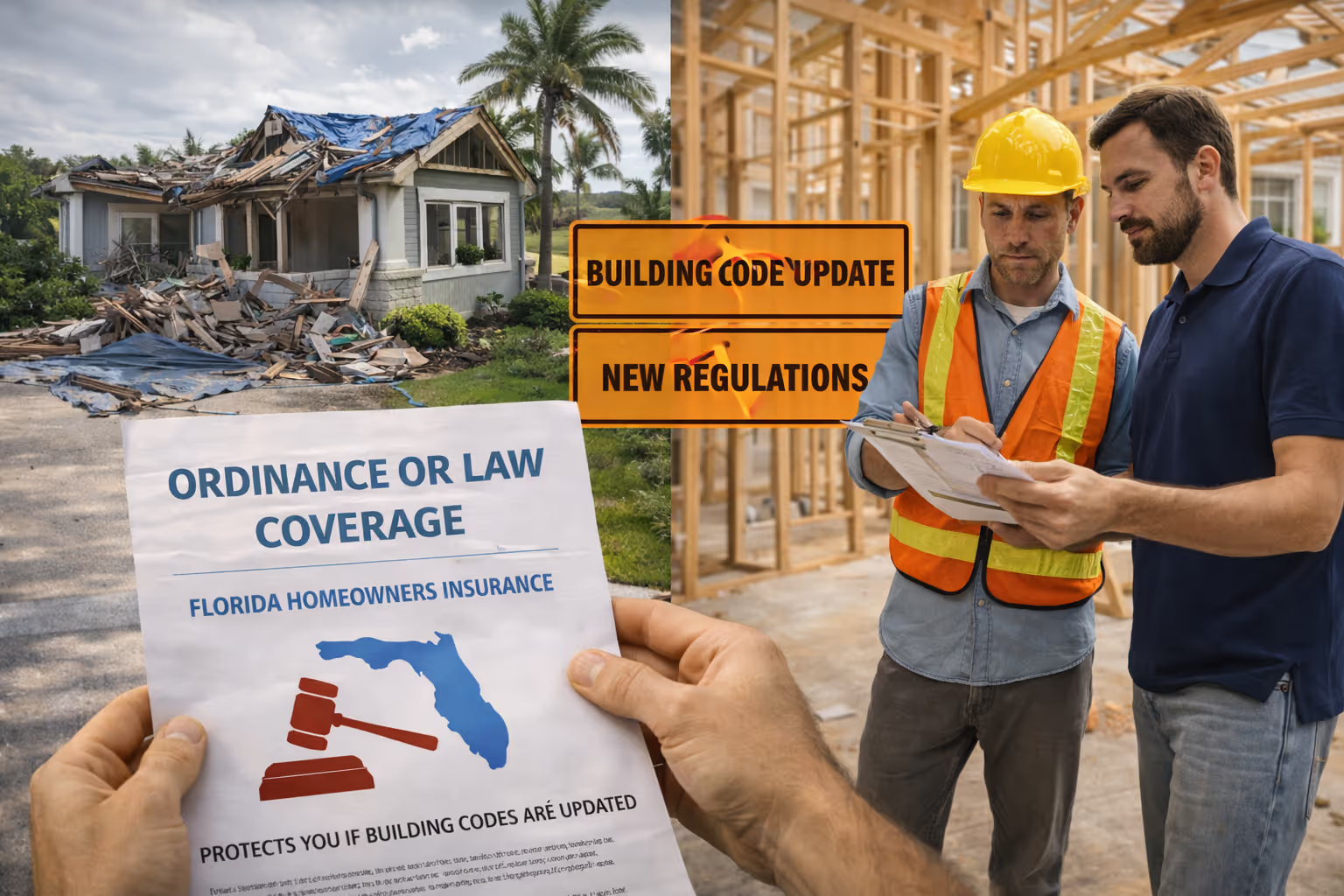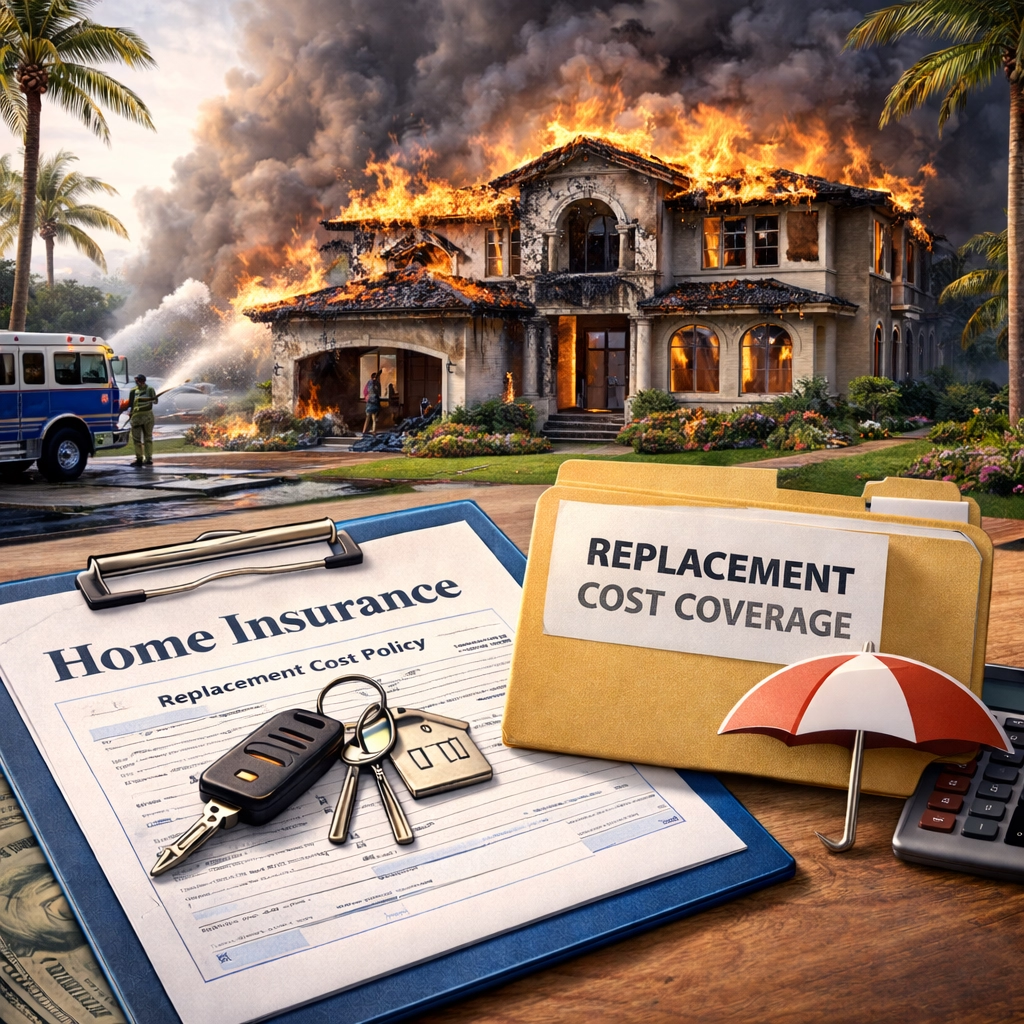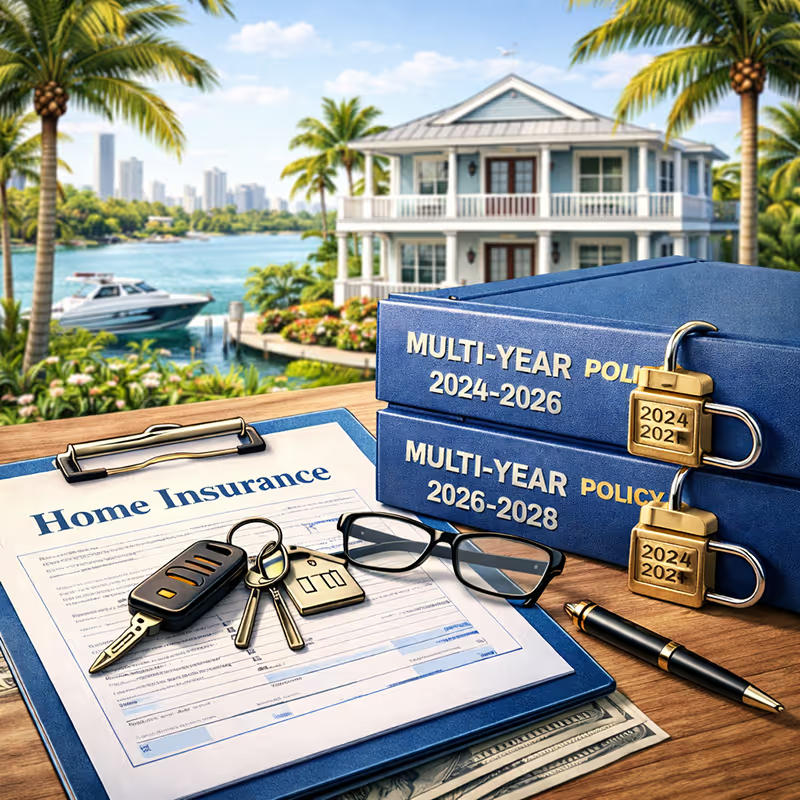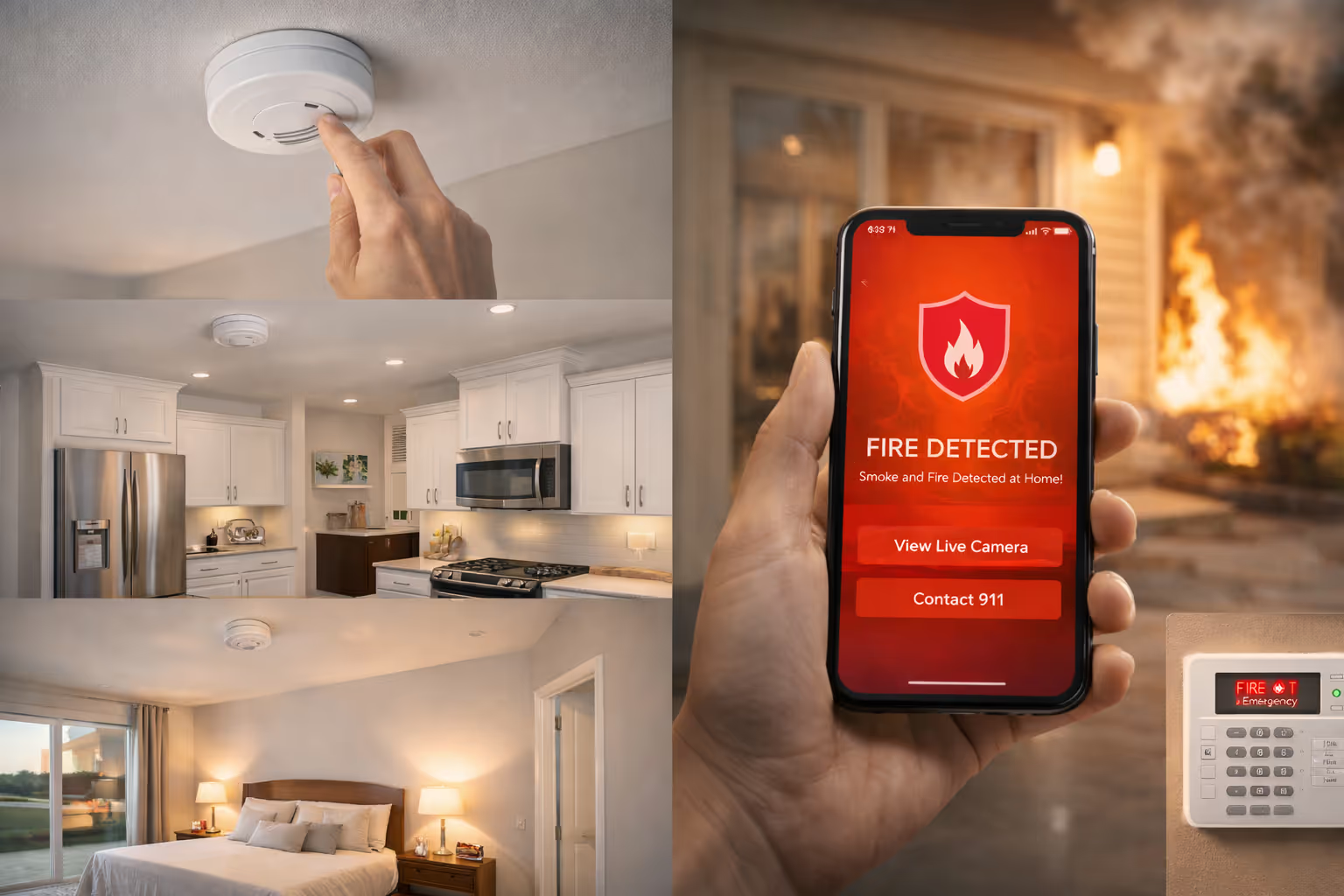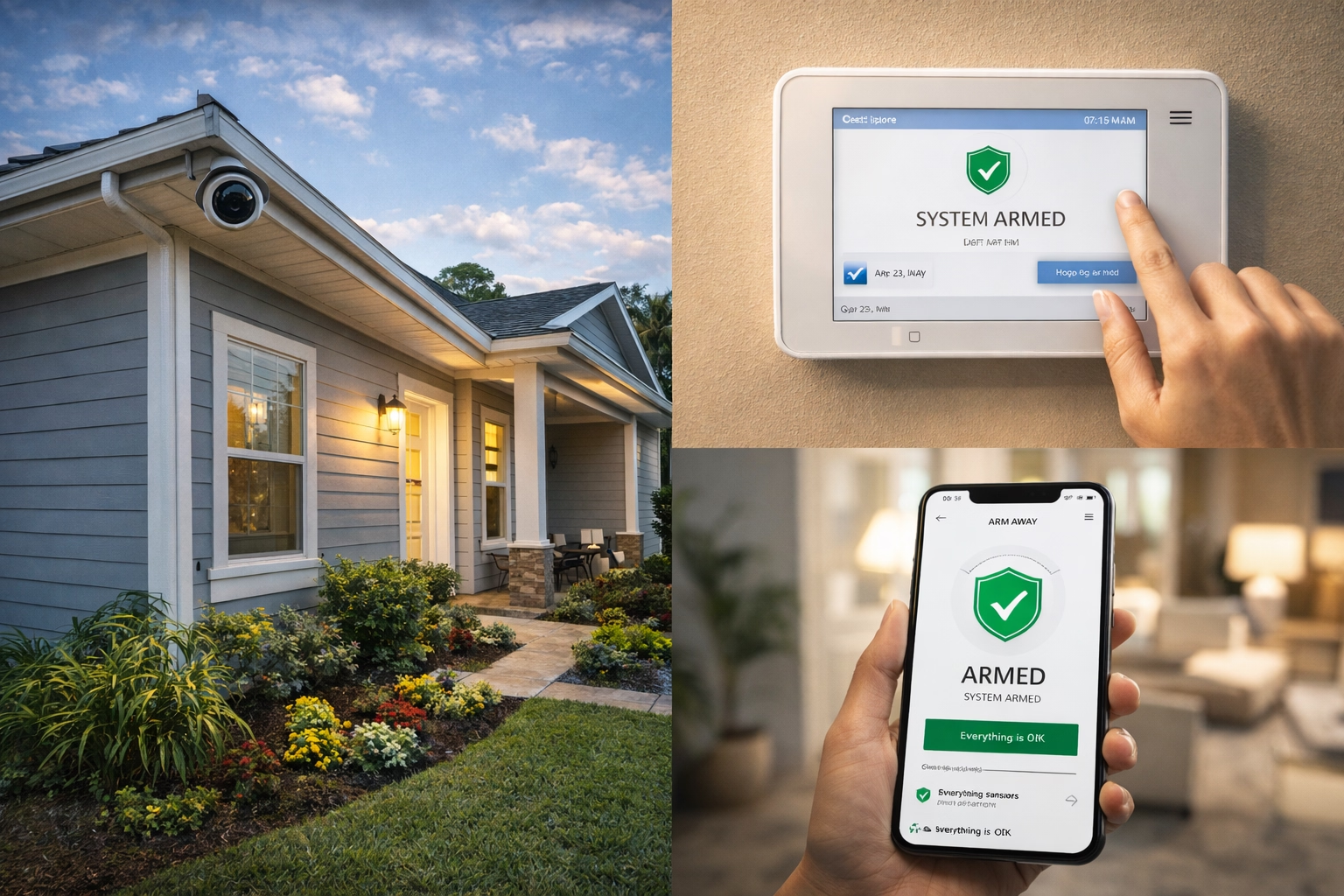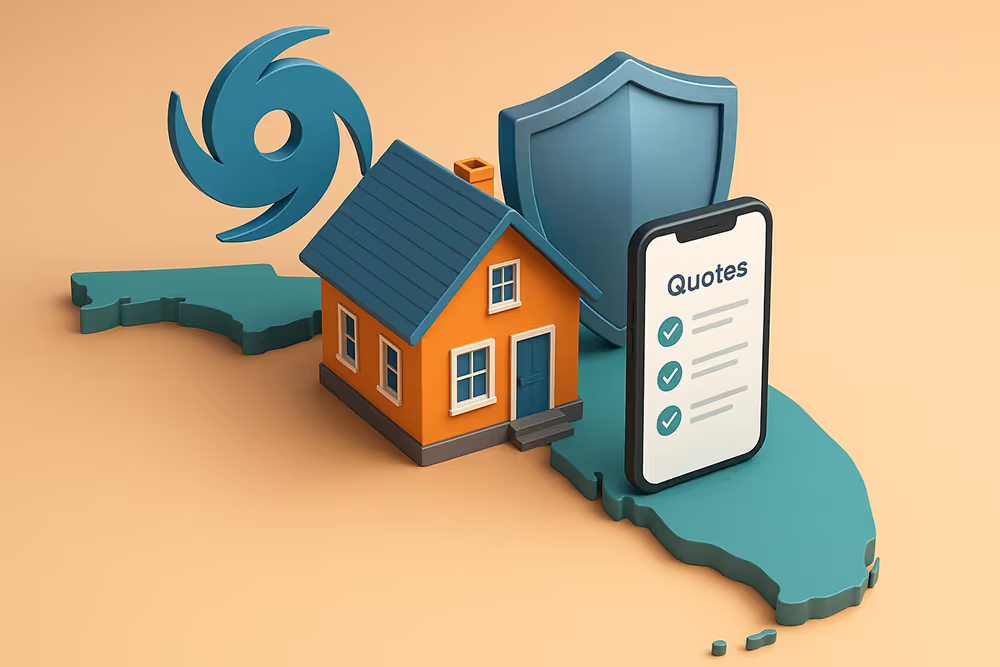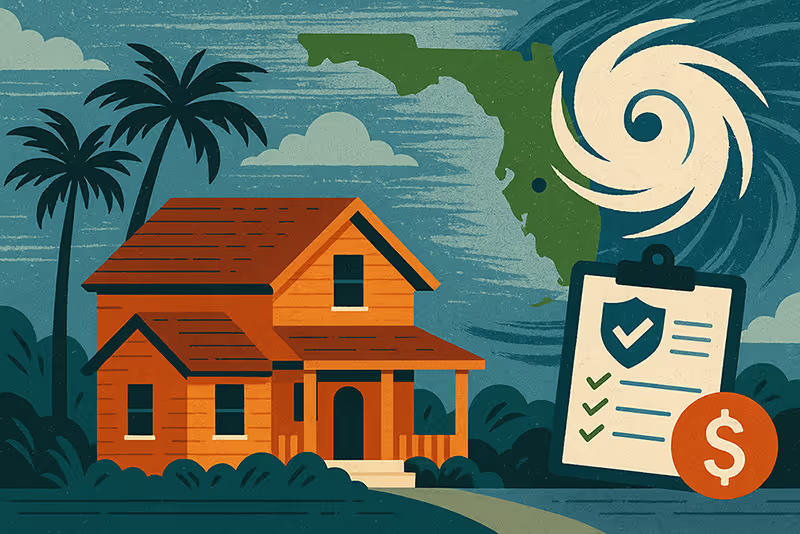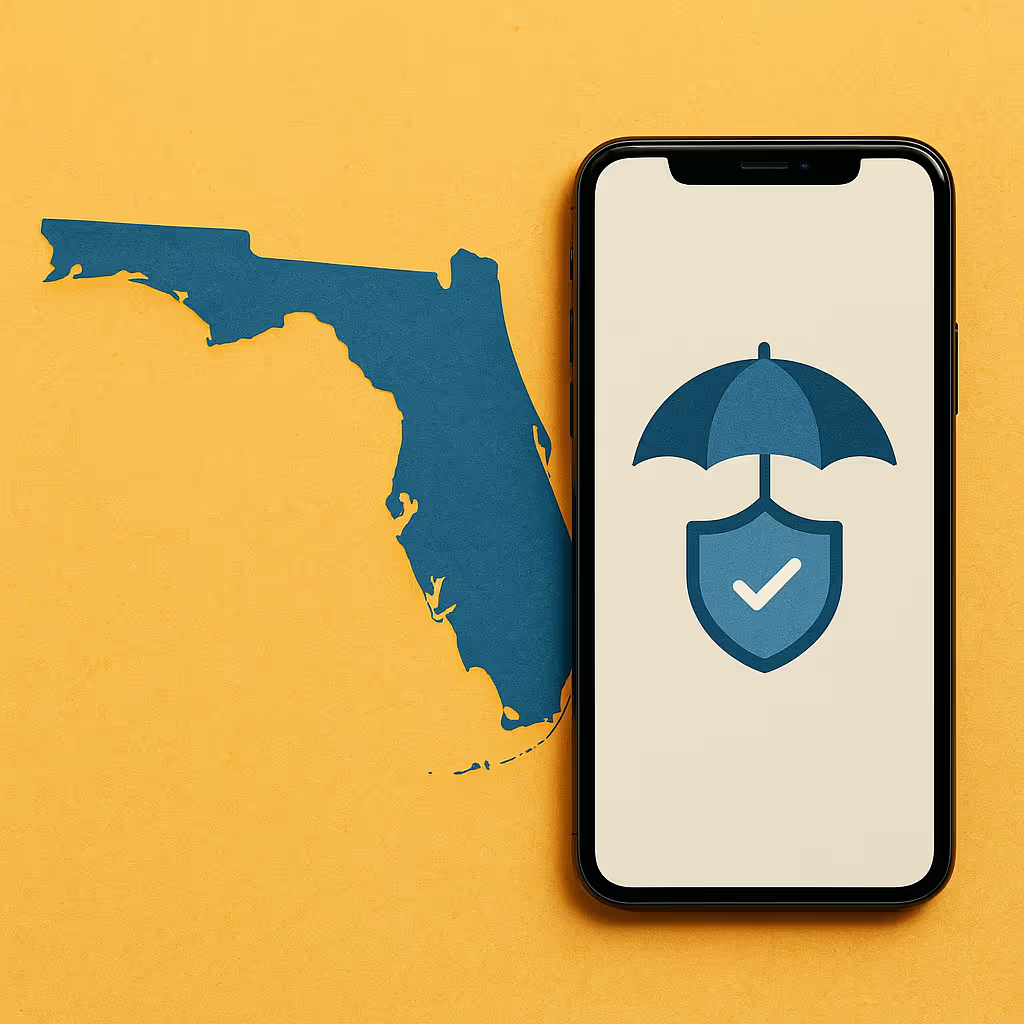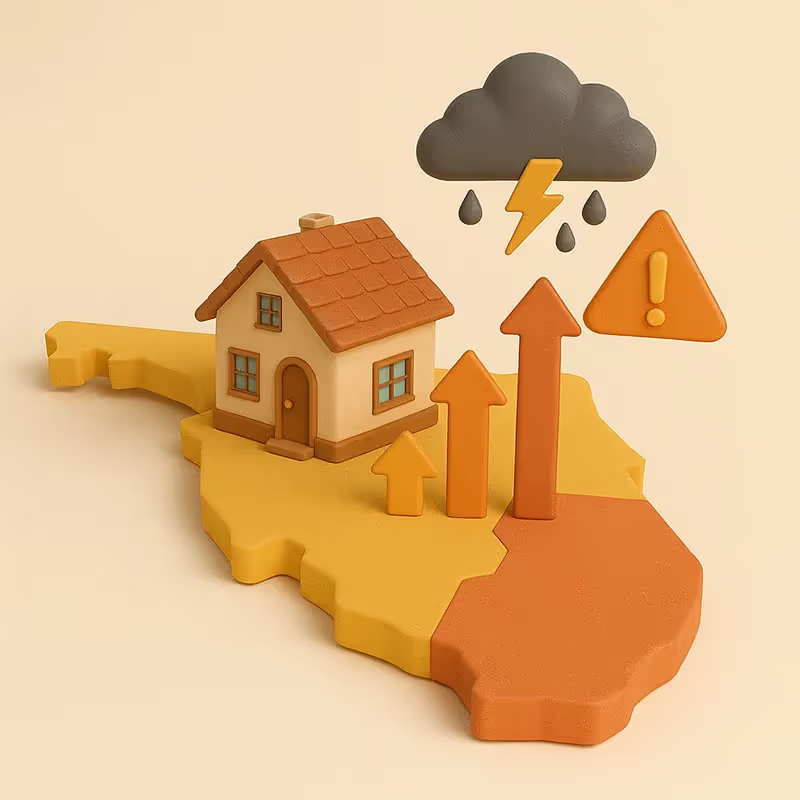10 Proven Ways to Lower Your Florida Home Insurance Premium – Start Saving Now

Florida home insurance doesn’t have to be wildly expensive—despite what your last quote might’ve suggested.
Yes, prices are rising. Yes, insurers are picky. But with the right strategy (and a little help on how to get cheaper home insurance ), you can still secure solid protection at a reasonable rate. This guide walks you through 10 practical, proven ways to cut your premium without leaving big gaps in coverage.
Quick Wins for Lower Rates
- Shop at least 3 providers (bundling counts)
- Choose a deductible that fits your real-life budget
- Don’t skip flood insurance—it’s not included
- Understand hurricane deductibles and limits
- Ask about every discount available
1. Shop Around—Seriously
Don’t stop after the first quote. Most Florida homeowners overpay because they never compare.
- Request quotes from at least three insurers
- Consider local providers who understand Florida’s risks
- Look into bundling auto, flood, and home for extra savings
Worth Insurance can handle the comparisons for you—especially useful if you’re short on time or not sure what coverage levels to ask for.
2. Choose the Right Deductible for You
Your deductible is the amount you’ll pay out of pocket before your insurance kicks in. Raise it, and your premiums drop—but make sure you could actually afford that number if disaster hits.
Common Deductible Options:
- $500: Lower risk, but higher premiums
- $1,000: Most common balance of cost and coverage
- $2,500 or $5,000: High-deductible plans that save more upfront
Hurricane Deductibles are Separate
These are typically 2% to 5% of your home’s insured value—not a flat rate. That means if your house is insured for $300,000, your hurricane deductible might be $6,000 to $15,000. Always check both deductibles before signing.
3. Stack Every Possible Discount
Insurance companies offer a surprising range of insurance discounts—but they don’t always advertise them unless you ask.
Discounts You Should Ask About:
- Security systems, deadbolt locks, and smoke detectors
- Wind mitigation upgrades like impact-resistant windows
- Claims-free history for the past 3–5 years
- Senior or retiree discounts
- Good credit score or loyalty to the provider
Sometimes even professional affiliations or employer groups qualify you for better rates.
4. Weigh Actual Cash Value vs. Replacement Cost
Most homeowners don’t realize this until a claim: the payout you get depends on how your policy values your property.
- Actual cash value (ACV) subtracts depreciation
→ Lower premiums, but lower payout if you file a claim - Replacement cost value (RCV) pays to replace with new items
→ Higher premiums, but full replacement coverage
If you choose ACV to save money , make sure your emergency savings can fill the gap.
5. Hurricane Deductibles are a Must-now
Florida policies almost always have separate hurricane deductibles—activated only during named storms declared by the National Weather Service.
What to do:
- Confirm if your hurricane deductible is a flat dollar amount or a percentage
- Budget realistically—hurricane season is getting longer and more intense
- Ask if your policy has an annual cap on hurricane deductibles
You don’t want to find out after the storm that you’re on the hook for a huge bill.
6. Flood Insurance is Not Included
Most homeowners policies in Florida do not cover flood damage. Yet more than 20% of flood claims come from homes outside high-risk zones.
Flood Coverage Options:
- National Flood Insurance Program (NFIP): Federally backed, widely available, coverage caps at $250,000
- Private flood insurance: May offer higher limits, faster claims, and coverage for temporary living expenses
Even if your lender doesn’t require it, flood insurance is often worth the peace of mind.
7. Consider Citizens Property Insurance (as a fallback)
If private home insurance companies turn you down—or premiums are simply unaffordable—Citizens Property Insurance Corporation may be your backup option.
Things to know:
- It’s the “insurer of last resort” in Florida
- Often more expensive than private plans
- Limited coverage and stricter underwriting, but better than going uninsured
Worth Insurance can explore Citizens as a backup only after checking all other possibilities.
8. Fewer Claims = Better Premiums
Small, frequent claims signal higher risk to insurers—even if the damage was minor.
How to Protect Your Record:
- Handle low-cost repairs out of pocket when possible
- Stay on top of maintenance like roof checks and plumbing inspections
- Install protective features (like sump pumps or water leak sensors)
A clean history can unlock loyalty discounts and preferred pricing tiers.
9. Invest in Your Home’s Security
Better protection equals lower risk—which most insurers will happily reward.
Security Upgrades That Pay Off:
- Alarm systems, motion sensors, and surveillance cameras
- Smart smoke detectors and fire suppression systems
- Impact-resistant windows, storm shutters, and new roofing
Some upgrades can cut insurance rates by 5%–15%, depending on your insurer.
10. Don’t “Set and Forget” Your Policy
Recheck your policy every year, or anytime your living situation changes.
Update Your Policy if:
- You renovate or add square footage
- You install new appliances or smart home systems
- Your local risk profile changes (like new flood zones)
Set a calendar reminder to review coverage, raise deductibles, or request a re-quote. Even small updates can trigger savings.
What Does Your Florida Policy Really Cover?
Homeowners insurance service isn’t just one thing. It’s a cluster of coverages designed to protect different aspects of your home and life.
Let’s break it down in simple terms:
1. Dwelling Coverage
Covers the structure of your home—walls, roof, foundation, built-in appliances. If a hurricane or fire damages your house, this is the part that helps rebuild it.
Tip: Make sure your dwelling limit reflects full rebuild costs—not just resale value.
2. Other Structures Coverage
Covers detached property: fences, garages, sheds, gazebos, even driveways. It’s usually 10% of your dwelling limit, but you can adjust it if needed.
3. Personal Property Coverage
Protects what’s inside: furniture, electronics, clothes, tools, appliances.
- Tip: Take a home inventory. Use photos and receipts if possible.
- Optional: Schedule high-value items (like jewelry or art) for extra protection.
4. Loss of Use Coverage
Also called Additional Living Expenses (ALE). If your home becomes unlivable, this pays for temporary housing, meals, and transportation.
- Example: If a hurricane wrecks your roof and you’re out for three weeks, this covers hotel stays.
5. Personal Liability Coverage
Protects you financially if someone is injured on your property and sues.
- It can cover legal fees, settlements, and medical costs.
- Consider raising limits if you have high assets or host guests often.
6. Medical Payments to Others
Covers small injuries that happen on your property—without needing a lawsuit.
Think of it as good-faith protection: a neighbor trips on your steps and needs stitches.
Why Florida’s Premiums Are Painfully High
If it feels like Florida is in an insurance crisis—it’s because we are. Here’s what’s driving the surge:
- Hurricane Frequency + Damage: We’re in the path of major storms, and insurers know it. With every new Category 3+ storm, their risk models shift—and rates go up.
- Legal System Abuse: Florida accounts for over 75% of the nation’s property insurance lawsuits, despite having only 8% of its claims. Fraudulent roof and water damage claims are rampant, and insurers pass those legal costs on to you.
- Reinsurance Rates Exploding: Insurance companies buy their own insurance (called reinsurance). In Florida, those costs have tripled in recent years—and that trickles down to homeowners.
- Shrinking Private Market: Many national carriers have pulled out of Florida or capped new policies. That means fewer options, stricter requirements, and higher costs for everyone else.
How to File a Claim Like a Pro
When disaster strikes, filing a claim the right way can make the difference between a smooth process and a frustrating delay.
6 essential steps:
- Take photos and videos of all damage
- Contact your insurer immediately
- Be present for the adjuster’s inspection
- Review the settlement—don’t be afraid to ask questions
- Use licensed, well-reviewed contractors only
- Keep all receipts and paperwork organized
Tip: Know your deductible before filing. If the repair is close to or under it, you might choose to pay out of pocket to keep your claims record clean.
Bundling: Is It Really Worth It?
In one word: yes. Bundling home and auto (or other policies) almost always results in a discount—and makes managing everything easier.
Why Insurers Love Bundlers:
- Lower perceived risk
- Higher customer loyalty
- Fewer overall claims
Common Bundle Discounts:
- 5%–15% off your home premium
- Enhanced coverage options for loyal customers
- Single deductible perks (in some cases, one deductible across bundled policies)
Don’t forget to ask if your career, alumni network, or home upgrades qualify you for even more discounts.
Upgrades That Cut Insurance Costs
Smart home improvements don’t just boost curb appeal—they can shrink your premium too.
Impactful Upgrades:
- Storm-resistant roofs: Metal and tile last longer and resist wind better
- Impact windows and shutters: Critical for hurricane zones
- Monitored security systems: Show insurers you’re actively reducing theft risk
- Leak sensors and automatic shutoffs: Especially in older homes
- Fire-resistant materials or sprinkler systems: Especially helpful for older wood-framed homes
Tip: Keep receipts and notify your insurer after upgrades. You won’t get the discount if they don’t know.
How to Manage Your Policy Year-Round
A home insurance policy isn’t a “set it and forget it” product. Keeping it updated ensures you're neither overpaying nor underprotected.
Things to Check Annually:
- Do your coverage limits still reflect your home’s value?
- Have you made any major renovations or purchases?
- Could a higher deductible or new discount apply now?
Even if nothing major has changed, a quick check-in could reveal a better deal elsewhere—or prompt your current provider to offer one.
How Worth Insurance Makes It Easier
We’re not just a comparison site or a quote generator—we’re Florida locals who offer assistance and specialize in navigating the state's volatile home insurance landscape.
Here’s how we help:
- We compare real quotes across Florida's top-rated carriers
- We know which discounts and bundling options apply to your situation
- We guide you through complex add-ons like flood, hurricane, or sinkhole coverage
- We support you during claims—you're not on your own
- We simplify everything, so you can feel confident (not confused)
Get a Quote That Actually Fits
When you’re ready, we’ll walk you through everything—from policy options to storm prep tips—and make sure you get a fair price without the stress.
If you’re a homeowner in Florida, having the right insurance coverage is essential to protect your investment from hurricanes, floods, and other unexpected events. Learn more about the different coverage options, policy requirements, and ways to save by visiting our detailed guide to Florida homeowners insurance.
To see how Worth can reduce your risk.
Get a Free Quote


